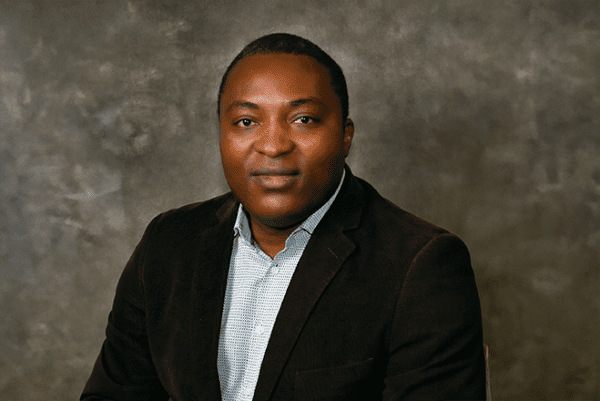Accounting professor’s research puts CEO salaries in sharp focus

Recent headlines reveal the widening CEO-to-worker pay gap as top executives who took pandemic pay cuts have recovered lost earnings in the last year, while the average worker saw a mere 4% increase in compensation.
Paul Tanyi, an associate professor in UNC Charlotte’s Turner School of Accountancy, says excessive executive compensation has been a concern to regulators in the United States for some time.
One of the provisions of the Dodd-Frank Act, passed in 2010 in the aftermath of the Great Recession, requires U.S. companies to disclose total CEO compensation and median employee pay. Disclosures made by companies show “most CEOs make more in one day than employees make in one year,” Tanyi says.
“I am really interested in understanding the role of external auditing and corporate governance in driving the quality of corporate financial reporting, and what elements of external auditing and corporate governance are consequential,” Tanyi says.
TANYI’S ACADEMIC JOURNEY
Tanyi’s academic journey started in the central African nation of Cameroon. He says even going back to elementary school, he dreamed of attending business school in the United States.
Knowing no one, Tanyi moved to the United States in 2004 to pursue a Master of Business Administration, attending Illinois State University. He ingrained himself into the program and excelled.
After earning his MBA, Tanyi decided to further his education and earn a Master of Accountancy.
“I worked in public accounting for a year and realized that I actually prefer teaching accounting better than practicing accounting,” Tanyi says. To that end, Tanyi continued on the academic path and pursued a Ph.D. in Business Administration focused on accounting from Florida International University.
His research is primarily in auditing and corporate governance and in the financial reporting process. When asked why he chose UNC Charlotte to continue his career, Tanyi had a quick answer.
“UNC Charlotte was just perfect in terms of geographic location and what the Belk College of Business had to offer,” he says. “I have to say one of my best career moves was to Charlotte. The location of the university, my colleagues, and the support I receive from the college have greatly helped me personally and also helped my research.”
“I have to say one of my best career moves was to Charlotte. The location of the university, my colleagues, and the support I receive from the college have greatly helped me personally and also helped my research.”
Paul Tanyi
Tanyi has published more than 14 research papers in the more than six years since joining the faculty at UNC Charlotte. He also has presented his research at a number of national and international conferences.
His research has appeared in top-tier accounting journals, including: Auditing: A Journal of Practice and Theory, Accounting Horizons, Journal of Accounting and Public Policy, Review of Qualitative Finance and Accounting and International Journal of Auditing. He has also served as an ad hoc reviewer for The Accounting Review, Review of Accounting Studies, and Auditing: A Journal of Practice and Theory.
“This is a remarkable academic accomplishment,” says Al Ghosh, former interim chair of the Turner School and Distinguished Professor of Accounting. “Paul’s research sheds valuable insights into the interactive effects of external auditing and corporate governance on corporate financial reporting quality. His research garners keen interest from practitioners, academics and regulators.”
Tanyi gives a nod to UNC Charlotte’s role with his research success. “UNC Charlotte has funded the data cost of my research, which is significant. Not all schools do that; they give me the tools I need to do good research,” Tanyi says.
Tanyi also credits the Turner School and Charlotte’s location for attracting top accounting students.
“They see our passion and that professors in this department love teaching, and care very much about students,” he says. “Additionally, most of the big and medium-size accounting firms and banks are here, allowing students to have top-tier internships where they live and not have to travel to other parts of the country.”
RESEARCH AND PUBLIC POLICY
Can research studies change public policy? Tanyi cites the case of Enron, and how evidence from prior auditing and corporate governance research conducted in the late ‘90s and early 2000s was used in testimonies made by experts to Congress in shaping the Sarbanes-Oxley Act. It will likely not be the last time.
“Everything revolves around accounting in the business world,” says Tanyi, making the point that the school’s degree program is essential and critical to the business environment of Charlotte and the region. He pointed out the presence of Bank of America, Duke Energy, and other companies as critical to the region and to his research.